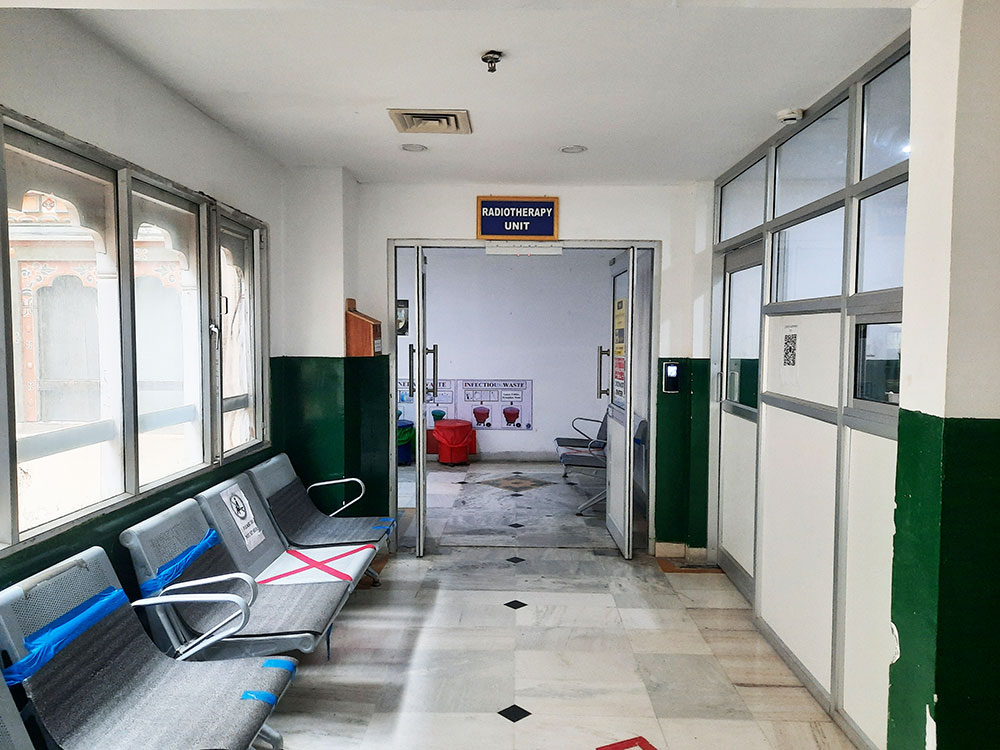Hospital administration denies issue with the radiotherapy machine
Younten Tshedup
Four years into operation, the national referral hospital in Thimphu (JDWNRH) has suspended its radiotherapy service. It has been a while since it was suspended and patients are being referred to India.
Sowai Lyonpo (Health Minister) Dechen Wangmo said that the service was suspended as a precaution, as an investigation was currently underway. “For us safety of our patients is the priority, which is why we are now referring our patients outside for treatment.”
Cancer patients are being referred to Kolkata, India for radiotherapy.
The suspension, according to sources, happened after some issues with the radiation therapy machine emerged recently. Sources said that since the installation of the radiotherapy machine about four years ago, the radiotherapy treatment did not benefit any of the patients who had received the service.
However, the hospital administration denied the existence of any problem with the radiotherapy machine installed in the hospital. Officials claimed the machine was in operation and that all patients were regularly receiving their treatment.
Kuensel made multiple requests for an interview with the hospital administration on the issue. Based on the hospital’s requirements, two different official request letters were submitted to the hospital administration requesting for an interview.
Officials from the administration, through email and a telephonic exchange denied the existence of any problem with the machine and no interviews in person were entertained.
One of the officials said that the president, medical superintendent, and the head of the department were all engaged.
Upon physical inspection, the radiotherapy department at the national referral hospital was not in operation on two different occasions. Later it was learnt that the service had been suspended recently and a team was inspecting the machine.
Background
In 2018, the national referral hospital introduced the radiotherapy service in light of several referral cases, which was both expensive for the government and a major hassle for the patients.
It was learnt that annually about 600 people were diagnosed with cancer in the country of which around 200 of them needed radiation therapy. People with rectum, oesophagus, lung, cervical, and head and neck cancers required radiation therapy.
Radiation therapy uses high-energy radiation to shrink tumours and kill cancer cells. The introduction of the radiation therapy service at the hospital in Thimphu was aimed to make the lives of cancer patients convenient, as they didn’t have to experience the hassle of travelling to India for treatment.
In 2017, the hospital board approved the introduction of radiotherapy services in the country. The hospital took about two years to study, negotiate and get the approval to introduce the service.
Given the lack of human resource, the service was outsourced to an international aid organisation, CARE Australia for 12 years. A radiation oncologist, a medical physicist, and a project manager from CARE Australia started providing the service since January 1, 2018.
The firm installed a linear accelerator (LINAC), a machine that is used for external beam radiation treatments for patients with cancer, at the hospital. The machine is imported from Germany.
Meanwhile, some patients expressed their challenges while going abroad for treatment. “It is never easy to be in a foreign land especially when you are sick. The language and location are a major challenge for people like us,” said a cervical cancer patient who had come for radiation therapy at JDWNRH.
She said that it was more difficult to go to India during the pandemic. “Doctors say people like us are more vulnerable to getting Covid-19. We do get support from the Bhutanese officials in India but if given an opportunity, I would like to get treated in Bhutan.”


